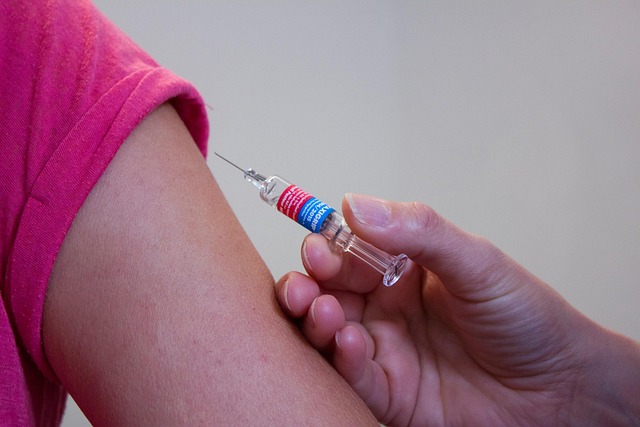Which Pneumonia Vaccine Should Seniors Get: Types, Timing, and Safety Considerations
Pneumonia vaccines are an important part of senior healthcare but many have questions about timing, safety, and costs. This article explains which pneumonia vaccine seniors may need, types of pneumococcal vaccination, schedules for those over 65, side effects, and insurance coverage.

Understanding Pneumococcal Vaccination Types and Timing
Pneumococcal vaccines protect against Streptococcus pneumoniae bacteria, which can cause serious infections including pneumonia, meningitis, and bloodstream infections. Currently, there are two main types of pneumococcal vaccines recommended for seniors:
-
Pneumococcal conjugate vaccine (PCV): The newer PCV15 (Vaxneuvance) and PCV20 (Prevnar 20) protect against 15 and 20 strains of pneumococcal bacteria, respectively. These vaccines have replaced the earlier PCV13 (Prevnar 13) in most recommendations for adults.
-
Pneumococcal polysaccharide vaccine (PPSV23): Marketed as Pneumovax 23, this vaccine provides protection against 23 types of pneumococcal bacteria that commonly cause serious disease.
The choice between these vaccines has evolved in recent years. As of 2022, the CDC’s Advisory Committee on Immunization Practices (ACIP) recommends either a single dose of PCV20 alone or a sequential administration of PCV15 followed by PPSV23 for adults 65 and older who haven’t previously received a pneumococcal conjugate vaccine.
Pneumonia Vaccine Schedule for Seniors Over 65
The current pneumococcal vaccination schedule for seniors follows these guidelines:
For adults 65 and older who have not previously received any pneumococcal conjugate vaccine:
-
Option 1: A single dose of PCV20
-
Option 2: A dose of PCV15 followed by a dose of PPSV23 at least one year later
For those who have previously received PPSV23 only:
- A single dose of PCV15 or PCV20 should be given at least one year after the most recent PPSV23 dose
For those who have previously received PCV13:
-
If PPSV23 was not given after PCV13, a dose of PPSV23 should be administered at least one year after PCV13
-
If already fully vaccinated with the older PCV13/PPSV23 series, no additional doses are currently recommended
Timing is crucial for optimal protection. The minimum interval between different pneumococcal vaccines matters, and adhering to the recommended schedule ensures maximum effectiveness and safety.
Common Side Effects and Safety Considerations
Pneumococcal vaccines are generally safe for seniors, though like all vaccines, they can cause some side effects. Most reactions are mild and temporary, resolving within a few days. Common side effects include:
-
Pain, redness, or swelling at the injection site
-
Mild fever
-
Muscle aches
-
Fatigue
-
Headache
Serious adverse reactions are rare. A review of clinical trial data for PCV15 and PCV20 found that severe side effects occurred in less than 1% of recipients, similar to rates with previous pneumococcal vaccines.
Seniors with severe allergies to any components of the vaccines should not receive them. Those who have had severe reactions to previous pneumococcal vaccines should consult their healthcare provider before receiving another dose. Additionally, anyone with moderate to severe acute illness should wait until recovery before vaccination.
For immunocompromised seniors or those with certain chronic conditions, vaccination is especially important, though the immune response may be lower than in healthier individuals. These patients should work closely with their healthcare providers to determine the optimal vaccination strategy.
Pneumonia Shot Costs and Insurance Coverage Explained
The cost of pneumococcal vaccines varies depending on the specific vaccine and where it’s administered. Understanding the financial aspects can help seniors plan accordingly.
| Vaccine Type | Average Retail Price | Medicare Coverage | Private Insurance Coverage |
|---|---|---|---|
| PCV15 (Vaxneuvance) | $200-230 per dose | Part B covers 100% | Typically covered with no copay |
| PCV20 (Prevnar 20) | $230-270 per dose | Part B covers 100% | Typically covered with no copay |
| PPSV23 (Pneumovax 23) | $110-150 per dose | Part B covers 100% | Typically covered with no copay |
Prices, rates, or cost estimates mentioned in this article are based on the latest available information but may change over time. Independent research is advised before making financial decisions.
Medicare Part B fully covers pneumococcal vaccines with no copayment or deductible when administered by Medicare-participating providers. Most private insurance plans also cover recommended vaccines with no out-of-pocket costs, as required by the Affordable Care Act for preventive services.
For uninsured or underinsured seniors, several options exist. The CDC’s Vaccines for Children Program doesn’t cover adults, but some state health departments, community health centers, and pharmacy discount programs offer pneumococcal vaccines at reduced costs. Additionally, vaccine manufacturers may have patient assistance programs that provide vaccines at little or no cost to eligible individuals.
Which Pneumonia Vaccine Should Seniors Get?
The decision about which pneumonia vaccine is most appropriate depends on several factors, including vaccination history, health status, and age. For most healthy adults 65 and older who haven’t previously received pneumococcal vaccines, a single dose of PCV20 offers broad protection against 20 pneumococcal strains with just one shot.
For those who prefer the PCV15 option, remember that it must be followed by PPSV23 to achieve protection against the full range of common pneumococcal strains. This two-vaccine series requires careful timing and an additional healthcare visit.
Seniors with certain underlying medical conditions—including chronic heart, lung, or liver disease, diabetes, or immunocompromising conditions—may benefit from vaccination before age 65. In these cases, following a healthcare provider’s recommendation is essential.
The effectiveness of pneumococcal vaccines in older adults ranges from 45-75% against invasive pneumococcal disease, with protection generally lasting for many years. While no vaccine provides 100% protection, pneumococcal vaccination significantly reduces the risk of serious illness and hospitalization from pneumococcal disease.
Ultimately, the choice of pneumonia vaccine should be made in consultation with a healthcare provider who can consider individual health factors, vaccination history, and the latest recommendations.
This article is for informational purposes only and should not be considered medical advice. Please consult a qualified healthcare professional for personalized guidance and treatment.




